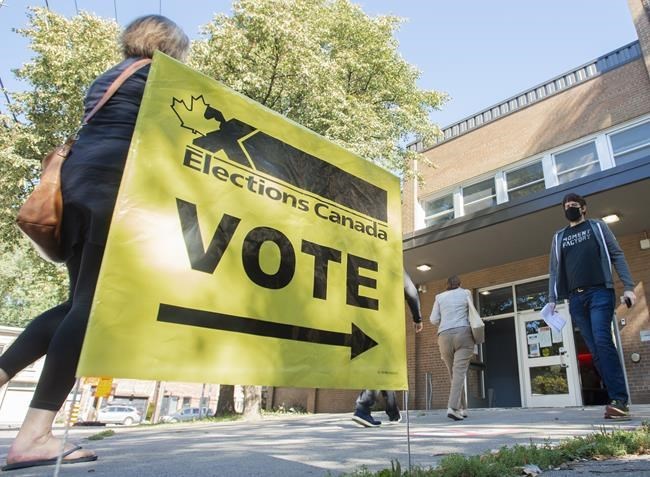OTTAWA — A parliamentary committee is set to decide whether or not it will expand its current study on foreign election interference to include more details about the 2021 federal election.
Conservative MP Michael Cooper said broadening the scope would be a way to seek greater transparency over the issue, which gained more attention last week after a report in the Globe and Mail said China worked in the last federal election to defeat Conservative politicians.
Citing classified records from Canada's spy agency, the newspaper also reported that China was trying to help ensure the Liberals were re-elected with a minority government.
Ahead of Tuesday's meeting of the House of Commons procedure and House affairs committee, Conservative, NDP and Bloc Québécois MPs wrote a letter to the Liberal chair to say they wanted to discuss the report's "shocking revelations."
The letter said the committee should "address the deeply troubling reports of Beijing's interference in our democracy" and look at how it can "expand the scope of its current study into this matter."
Prime Minister Justin Trudeau said last week that Canadian voters alone decided the last federal election, playing down the suggestion that China tried to unduly sway the outcome.
Speaking before the meeting began, Cooper accused Trudeau and his office of trying to deflect.
Cooper said he wants Trudeau's chief of staff, Katie Telford, to appear before the committee, along with Public Safety Minister Marco Mendicino, Intergovernmental Affairs Minister Dominic LeBlanc and Foreign Affairs Minister Mélanie Joly.
The committee has been studying foreign interference in the 2019 federal election since November.
Its members have already questioned witnesses from the RCMP, the Canadian Security Intelligence Service and Elections Canada.
Michael Pal, an associate law professor at the University of Ottawa, academic sources, journalists and Canada's national security agencies have suggested that "foreign interference happens in every federal election in Canada now," although its effect remains unclear.
"It's just very hard to measure how people would have otherwise acted absent the foreign interference. Would they have voted differently? Would they not have voted?" he said.
Under a federal protocol, there would be a public announcement if a panel of senior bureaucrats determined that an incident — or an accumulation of incidents — threatened Canada's ability to have a free and fair election.
There was no such announcement in 2021 or concerning the 2019 election. Both times, the Liberals remained in government with minority mandates, while the Conservatives formed the official Opposition.
"Presumably they either didn't have the intelligence at the time or they had it and it just … did not, in their estimation, rise to the level necessary to make such an announcement to the public," Pal said.
The committee has been studying foreign interference in the 2019 federal election since November.
Its members have already questioned witnesses from the RCMP, the Canadian Security Intelligence Service and Elections Canada.
This report by The Canadian Press was first published Feb. 21, 2023.
Mickey Djuric, The Canadian Press




